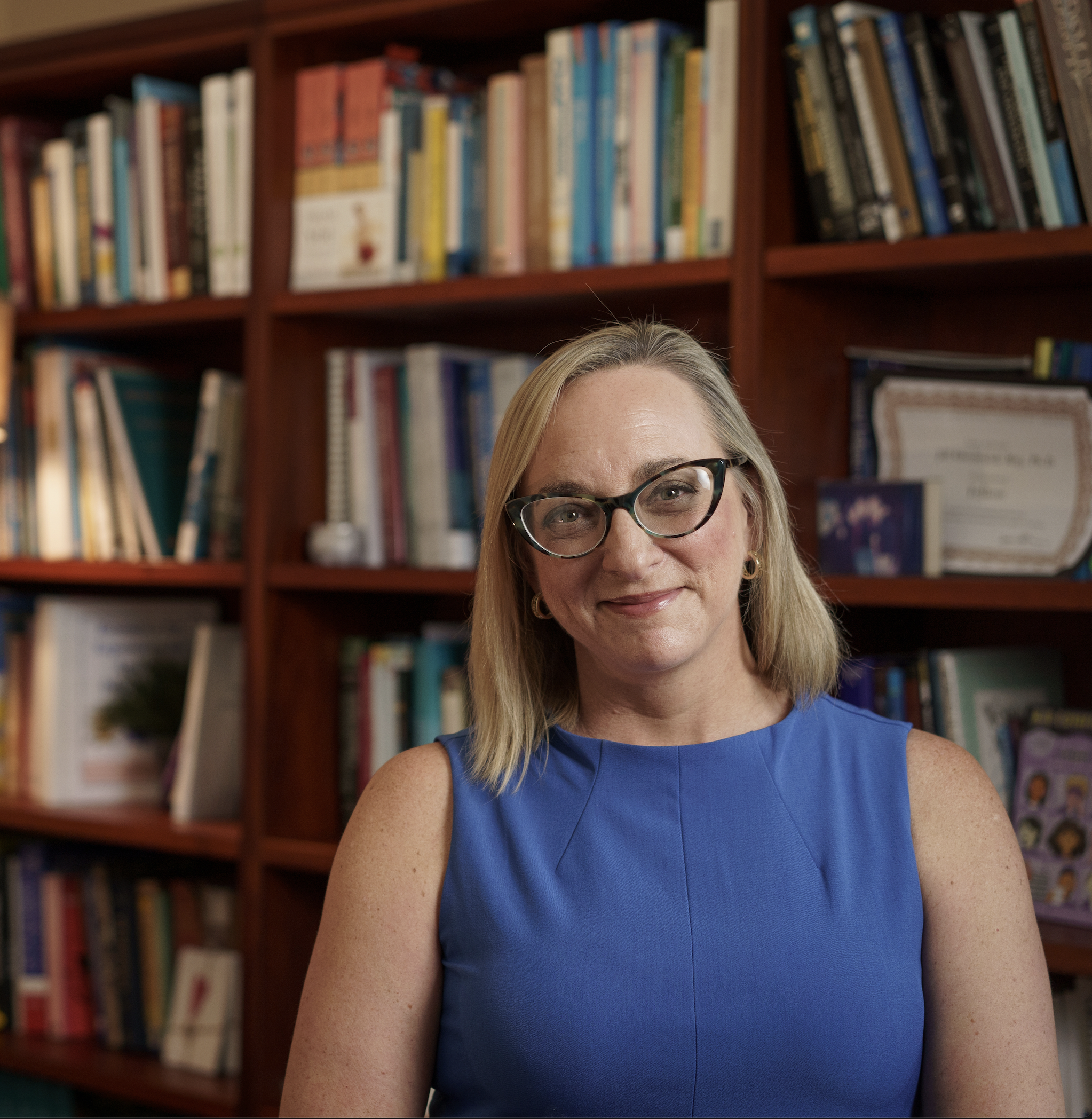Mini Workshop
Transdiagnostic
Introducing Growth-Focused CBT: A Transdiagnostic Approach to Avoidance-Based Disorders in Childhood
Mini Workshop 14 - Introducing Growth-focused CBT: A Transdiagnostic Approach to Avoidance-based Disorders in Childhood
Friday, November 15, 2024
2:30 PM - 4:00 PM EST
Location: Grand Ballroom D, Level 5, Downtown Marriott
Earn 1.5 Credit
Keywords: Child, Transdiagnostic, Treatment
Level of Familiarity: Basic to Moderate
Recommended Readings: Harley, J. (2015). Bridging the Gap between Cognitive Therapy and Acceptance and Commitment Therapy. Procedia-Social and Behavioral Sciences, 193 (30), 131-140., Burnette, J.L., Knouse, L.E., Vavra, D.T., O'Boyle, E., Brooks, M.A. (2020). Growth mindsets and psychological distress: A meta-analysis. Clinical Psychology Review, 77, https://doi.org/10.1016/j.cpr.2020.101816., Prochaska, J. O., Norcross, J. C., & Saul, S. F. (2020). Generating Psychotherapy Breakthroughs: Transtheoretical Strategies From Population Health Psychology. American Psychologist. http://dx.doi.org/10.1037/amp0000568., ,
Level of Familiarity: Basic to Moderate
Recommended Readings: Harley, J. (2015). Bridging the Gap between Cognitive Therapy and Acceptance and Commitment Therapy. Procedia-Social and Behavioral Sciences, 193 (30), 131-140., Burnette, J.L., Knouse, L.E., Vavra, D.T., O'Boyle, E., Brooks, M.A. (2020). Growth mindsets and psychological distress: A meta-analysis. Clinical Psychology Review, 77, https://doi.org/10.1016/j.cpr.2020.101816., Prochaska, J. O., Norcross, J. C., & Saul, S. F. (2020). Generating Psychotherapy Breakthroughs: Transtheoretical Strategies From Population Health Psychology. American Psychologist. http://dx.doi.org/10.1037/amp0000568., ,

Jill Ehrenreich-May, Ph.D.
Professor
University of Miami
Miami, Florida, United States
Lisa W. Coyne, Ph.D.
Assistant Professor
Harvard Medical School
East Sandwich, Massachusetts, United States
Presenter(s)
Sensitive and responsive child and adolescent treatment requires a clear understanding of what constitutes “the problem”. However, as a field, we too often focus on such problems to the exclusion of nurturing and shaping children’s existing abilities to learn and grow. When approaching problems involving avoidance as a primary action tendency, while we emphasize blocking avoidance, it is also critical to shape more effective alternatives to exploring one’s environment. Simultaneously, dissemination of youth psychotherapy is hampered by divisions between similar or like-minded treatment approaches to avoidance-related disorders that contain companionable principles or functionally-equivalent components that can be thoughtfully combined to support optimal growth.
Growth-Focused CBT (G-CBT) is a new evidence-informed contextual approach that integrates a variety of related transdiagnostic and behavior therapies with strong evidence supporting their effects, including youth versions of Acceptance and Commitment Therapy (ACT), Cognitive Behavior Therapy (CBT), Dialectical Behavior Therapy (DBT), Behavioral Parent Training (BPT), and culturally-responsive psychotherapy approaches. An initial treatment goal of G-CBT is to shape a growth mindset that supports lifelong learning in the face of adversity. G-CBT then focuses on identifying and ameliorating obstacles to a child’s flexibility and growth, as well as shaping capacities and skills to support sensitive and flexible emotional and behavioral functioning that optimizes adaptation via brief, pragmatic presentation of selected treatment components.
In this didactic and interactive workshop, presenters will introduce the theoretical framework for G-CBT, provide a clear model for behavioral assessment and development of an idiographic “Growth Plan”. They will describe and illustrate with examples of its core treatment skills in the broad domains of emotional, cognitive, behavioral, and contextual growth. Participants can expect to leave the workshop with an overview of transtheoretical strategies and exercises for how to assess young peoples’ strengths and skills deficits, to shape young their capacities and strengths, and support flexible and effective learning in context.
Outline:
The presenters will first introduce the theoretical framework for Growth Focused-CBT.
Presenters will then provide a clear model for behavioral assessment and development of an idiographic “Growth Plan”.
Finally, presenters will describe and illustrate with examples of the program’s core treatment skills in the broad domains of emotional, cognitive, behavioral, and contextual growth.
Growth-Focused CBT (G-CBT) is a new evidence-informed contextual approach that integrates a variety of related transdiagnostic and behavior therapies with strong evidence supporting their effects, including youth versions of Acceptance and Commitment Therapy (ACT), Cognitive Behavior Therapy (CBT), Dialectical Behavior Therapy (DBT), Behavioral Parent Training (BPT), and culturally-responsive psychotherapy approaches. An initial treatment goal of G-CBT is to shape a growth mindset that supports lifelong learning in the face of adversity. G-CBT then focuses on identifying and ameliorating obstacles to a child’s flexibility and growth, as well as shaping capacities and skills to support sensitive and flexible emotional and behavioral functioning that optimizes adaptation via brief, pragmatic presentation of selected treatment components.
In this didactic and interactive workshop, presenters will introduce the theoretical framework for G-CBT, provide a clear model for behavioral assessment and development of an idiographic “Growth Plan”. They will describe and illustrate with examples of its core treatment skills in the broad domains of emotional, cognitive, behavioral, and contextual growth. Participants can expect to leave the workshop with an overview of transtheoretical strategies and exercises for how to assess young peoples’ strengths and skills deficits, to shape young their capacities and strengths, and support flexible and effective learning in context.
Outline:
The presenters will first introduce the theoretical framework for Growth Focused-CBT.
Presenters will then provide a clear model for behavioral assessment and development of an idiographic “Growth Plan”.
Finally, presenters will describe and illustrate with examples of the program’s core treatment skills in the broad domains of emotional, cognitive, behavioral, and contextual growth.
Learning Objectives:
At the end of this session, the learner will be able to:
- Describe the transdiagnostic principles and integrated theoretical approach behind G-CBT.
- Assess child functioning across emotional, cognitive, behavioral, and contextual growth domains.
- Create a “Growth Plan” that informs strengths-based treatment and serves as an outcome measure.
- Implement concrete strategies to shape the strength of child clients in emotional, cognitive, and behavioral, and contextual domains.
- Long-term goal: Participants will leave the workshop with an overview of transtheoretical strategies and exercises they can then utilize over the longer-term to assess young peoples’ strengths and skills deficits, to shape young their capacities and strengths, and support flexible and effective learning in context.

.png)
